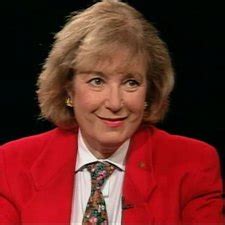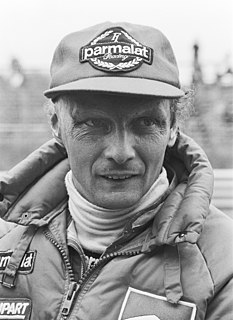A Quote by Georges Bataille
But a sort of rupture-in anguish-leaves us at the limit of tears: in such a case we lose ourselves, we forget ourselves and communicate with an elusive beyond.
Related Quotes
It is difficult to see ourselves as we are. Sometimes we are fortunate enough to have good friends, lovers or others who will do us the good service of telling us the truth about ourselves. When we don't, we can so easily delude ourselves, lose a sense of truth about ourselves, and our conscience loses power and purpose. Mostly, we tell ourselves what we would like to hear. We lose our way.
Sure, some [teachers] could give the standard limit definitions, but they [the students] clearly did not understand the definitions - and it would be a remarkable student who did, since it took mathematicians a couple of thousand years to sort out the notion of a limit, and I think most of us who call ourselves professional mathematicians really only understand it when we start to teach the stuff, either in graduate school or beyond.
In modern society most of us don't want to be in touch with ourselves; we want to be in touch with other things like religion, sports, politics, a book - we want to forget ourselves. Anytime we have leisure, we want to invite something else to enter us, opening ourselves to the television and telling the television to come and colonize us.
The more isolated and disconnected we are, the more shattered and distorted our self-identity. We are not healthy when we are alone. We find ourselves when we connect to others. Without community we don't know who we are... When we live outside of healthy community, we not only lose others. We lose ourselves...Who we understand ourselves to be is dramatically affected for better or worse by those we hold closest to us.
Each one of us needs time and space for recollection, meditation and calmness.... Thanks be to God that this is so! In fact, this need tells us that we are not made for work alone, but also to think, to reflect or even simply to follow with our minds and our hearts a tale, a story in which to immerse ourselves, in a certain sense to lose ourselves to find ourselves subsequently enriched.
Our Christian destiny is, in fact, a great one: but we cannot achieve greatness unless we lose all interest in being great. For our own idea of greatness is illusory, and if we pay too much attention to it we will be lured out of the peace and stability of the being God gave us, and seek to live in a myth we have created for ourselves. And when we are truly ourselves we lose most of the futile self-consciousness that keeps us constantly comparing ourselves with others in order to see how big we are.
I was not interested at all in Formula One when I left; I was very busy with my airline. But slowly I started missing the adrenaline rush and the driving of such fantastic cars at the limit. In reality this urge never disappears when you're a top driver, because I think we're a different breed of people, we need to take chances, we need to push ourselves to the limit all the time, that sort of thing. It stays with you, although you can kill it by losing motivation or other things in your life, but it never leaves you forever.





































